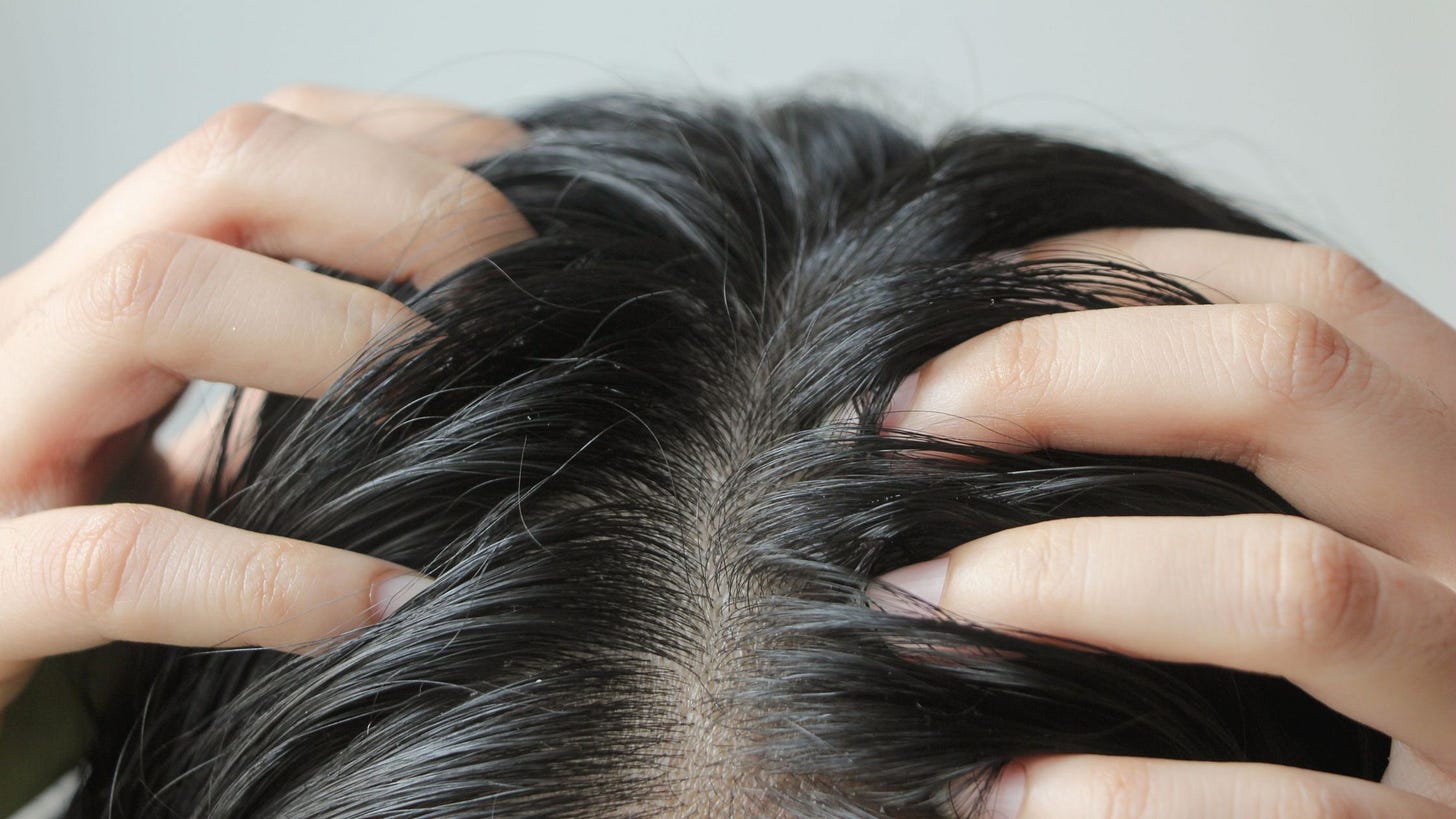Itching—Lice or Something Else?
Written by Hanaa Saleem
The first image that comes to mind, typically associated with excessive scratching, is lice. But sometimes it can be more than that, not hair bugs, but rather inflammation! Eczema, also known as atopic dermatitis, is a chronic inflammatory skin condition that affects millions worldwide. Though it is commonly seen to start in childhood, several cases can still persist into adulthood or even develop in adulthood. However, unlike lice, eczema is neither contagious nor as easy to remove. The condition, especially in more severe presentations, actually have significant impacts on the quality of life due to the persistent itching (can lead to bleeding and semi-permanent scarring if not properly treated) and repeated skin irritation.
Eczema is generally known to arise from a combination of both genetic as well as environmental factors with a weakened skin barrier making the symptoms worse. A common reason why a damaged skin barrier arises is from high UV exposure (make sure to always put on sunscreen), which makes it overall harder for the skin to retain moisture and much easier for the body to absorb irritants, allergens, and microbes. Common triggers include types of soap, allergens, stress, and packaged foods, with a particular weakness for eczema, asthma, and hay fever family history.
This brings me the potential cures. In order to escape these symptoms of itchy, irritation and inflamed skin, it is recommended to avoid using any scented soaps, body washes, or detergents. This makes it so that there are less chemicals in those compounds that could potentially irritate the skin even further. Stress on a large scale, surprisingly, can also work to affect your skin negatively, as it lowers the immune system function overall. This makes it so that the body’s defense mechanisms are significantly decreased, damaging your skin even more. Avoiding excessive intake of packaged foods is also a better way to address eczema at home because the preservatives negatively affect the skin as well.
But that also brings me to medical treatments. Right now, in the market, doctors recommend moisturizing regularly with a combination of topical corticosteroids or calcineurin inhibitors. For itching, a diet of low histamine foods (a compound in the body responsible for the ‘itching’ feeling) and antihistamines are commonly prescribed. There have also been recent advances, especially in biologics like dupilumab, which is responsible for targeting specific pathways in the immune system and offer overall relief.
So while itching might not always indicate lice, it shouldn’t be ignored either. Persistent or widespread itchiness, especially when accompanied by redness, dryness, or inflammation, could be a sign of eczema, a condition that deserves medical attention and proper care. Understanding the root causes, avoiding triggers, and staying consistent with treatment can make a huge difference in managing symptoms. Eczema may not have a permanent cure, but with the right approach, it’s entirely possible to keep flare-ups under control and improve skin health over time.
Written by Hanaa Saleem from MEDILOQUY


